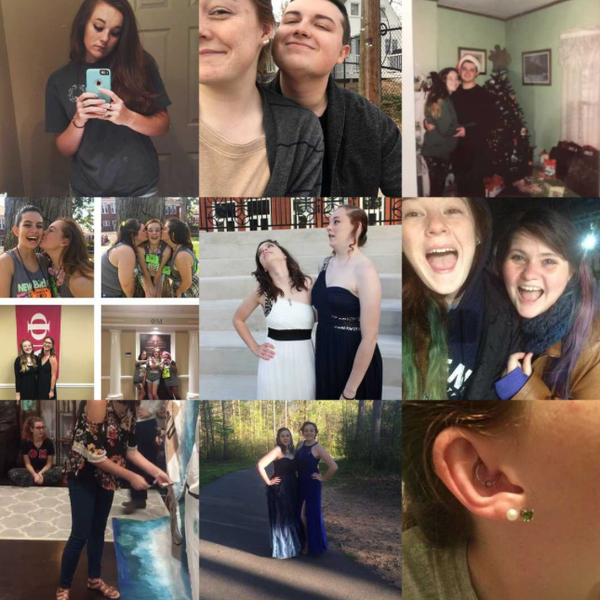No one said a word. Not to me, that is. Mom would always leave the room with a tense expression. A man leaning over an impossible amount of papers would appear, regretting the words that always came out too fast.
“We don’t know.”
But no one said a word. There was no sound. I was always trapped in a small white four walled containment center, left with only the feeling of a long gone needle that had been unceremoniously placed in my arm. The T.V was never on. I didn’t care to watch smiling faces. The worry lines on foreheads out in the halls were more interesting. They told me something.
The lines say how hard the day has been, or if this person has just arrived, how much they will dread the hard day to come, or if worry lines don’t appear until shifts are over, how hard home life is. What they don’t tell me is what specifically happened. I’m left to imagine the worst. Who’s sick? Who got hurt? Did an operation go wrong? Did you miss your son graduation? What time was your daughter’s soccer game? Did someone die?
That last one frustrates me. Who died? Was it someone like me? Did they not know what’s happened either? What were they told beforehand?
Am I next?
“No, baby. You’ll be fine. I promise.” Sadly, the certainty never reached my mother’s eyes when she tried so hard to comfort me. Then she went in the hall and the same man came out with worry lines that elongated from his forehead down to his lips, marring his face with stress. What does that say about him?
I didn’t try to listen anymore. They’re silence was so much louder. A nurse came in with sets of needles. She said it wouldn’t hurt, yet I ended up crying anyway. Mom would run into the room, and hold my hand. I’m not sure what she was trying to accomplish. As if someone holding my hand, saying it’s all okay, is going to stop a piece of metal from invading my personal space.
The needles were always pushing in different colored chemicals in me. All of them created a searing pain that shot up my arms. They made my hair fall out, too. I heard a nurse whisper something about “chemo”, once. I wish she had gone outside with Mom.
That was when I was 10. I’m 16 and everyone won’t stop talking. They used all these scientific explanations with no actual answers. It’s the “Thank you, for adding on to my equation, but I asked for the solution” that I’m trying to get across. But no one listened to the sick girl.
Oh! But they know for sure what it is now! Oh, it’s definitely cancer. It just has to be cancer. What else could it possibly be? But of course, cancer! What kind of cancer? Where did it come from? What can we do to stop it? Is it curable? Is it terminal? Can we do more studies? How many test can will do on you before you pass out? Get worse? Die?
“We don’t know.”
It was the only answer that has changed only by its sound, because now I can hear it. The words aren’t hidden behind a door anymore. They aren’t only seen in the worry lines of people’s faces. I can hear every syllable.
But I wish they were.
I wish they were still hidden outside in the halls with my mother. But they aren’t. They don’t ever take mom out anymore. They never tried to hide the news of my dying. The nurses stopped saying, “This won’t hurt”. Mom had more worry lines than the doctors. No one faked smiles. The T.V. stays on to drown out the noise. The chemicals aren’t colorful. It all looks gray.
It’s all gray.
I wish I could just be talking about the chemicals now. But I’m not. Gray wall bedrooms. Gray sheets. Gray gown. Gray faces. Gray hospital. Gray life. I don’t even know what outside looks like away from the box frame of a window. All I’m allowed to do is sit and wonder what’s going to happen, but how can I think when everything is so loud, because everyone won’t stop talking.
That was when I was 16. That was when I was alive. Now there’s a headstone somewhere that says, “Here lies a miracle that never happened."
The doctors don’t remember my name. My hospital room is occupied. My sheets have been thrown out. My nurses’ tell other people that needles won’t hurt. My mother had another child that was “perfectly healthy.” My mother still cries, but I can’t hold her hand. The ground that I’m in is always damp. My wooden containment room is rotted.
I was 19 years old, and they told me I was fine. But then, I died. And no one said a word. Not to me, that is.





















